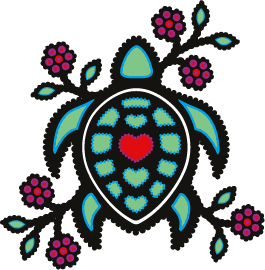Self-Regulation
Self-regulation is a foundational skill for the wellbeing throughout our lifespan. Research indicates that self-regulation is needed for educational achievement and for our physical, emotional, social and economic health. Self regulation is a balance and connection in all aspects of our being - physical, mental, emotional and spiritual. To regulate, we need to connect with and form a deep relationship with self to know who we are, what we came on this Earth to experience and what our needs are. We learn the skill of self-regulation similarly to how we learn to read - through practice, and support from those who know how.
Why do we need self-regulation skills?
Self-regulation means that our behavior, thoughts, emotions are in alignment with who we truly are, and what we want out of life. Dysregulation means that we are acting, thinking and feeling out of alignment with who we are and what we want. We need the skill of self-regulation so that we can understand ourselves, be of service to our community, and live the life that we truly desire.
Self-regulated behaviors are focus, attention, and intuition. When we are regulated, we have harmonious relationships with others, our self, substances, eating, and our emotions. Self-regulated behaviors are loving and compassionate to ourselves and others.
Dysregulation Behaviors are impulsivity, relational conflict, mood swings, substance misuse, anxiety, disordered eating, suicidal thoughts, high levels of shame, perfectionism, tantrums, inattentive, gambling, aggression, high risk sexual behavior, and impulsive spending.
Self-regulation predicts socio-economic success as well. Self-regulated behaviors are conducive to skills such as managing money, saving, and avoiding credit problems.
There are devastating impacts for those that were never given the opportunity to learn self-regulation skills. The impacts of not learning this skill are associated with violence, substance abuse, mental health concerns as dysregulated behaviors often lead to these types of outcomes.
Domains of Self-Regulation include: Cognitive, Emotional and Behavioral.
Cognition self-regulation is being able to pay attention, set and work towards our goals, learning how to solve problems when they arise, and making decision.
Emotional self regulation is feeling and coping with our strong and unpleasant emotions. We need awareness and understanding of our emotions and involves self-calming strategies to build up our tolerance of internal distress.
Behavioral self regulation includes discipline, persistence, impulse control, choosing coping strategies that are aligned with our goals.
Developing Self-Regulation
The great news is that self-regulation can be strengthened throughout the lifespan. Whether someone is 5 years old or 50 we can learn this important skill. Our brain and nervous system have an innate capacity to change. This is called neural plasticity. It is a slow process that requires a significant amount of discipline - but it can and has been done.
Co-regulation - The Power of Relationships
Adults such as parents, teachers, coaches, educational assistants, and other mentors play an important role in developing self-regulation from birth to adulthood through something called “co-regulation”. As humans we learn self-regulation through our relationships with other people. It is through warm and responsive interactions where support and modeling is provided to teach the ability to understand, express and modulate their thoughts, feelings and behaviors. By doing the activities listed above with your student/child, you are supporting them in developing their self-regulation skills.




